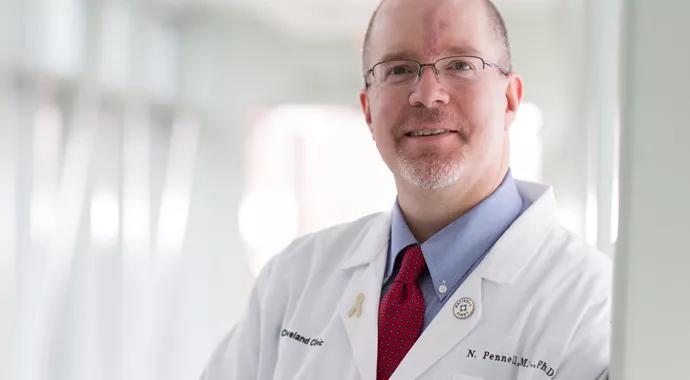Team work, care paths can make a difference

As genetic testing and targeted therapies rapidly evolve, it can be difficult for the various parties involved in cancer care decision-making – clinicians, pathologists, administrators, insurers and regulators – to keep up with and agree on the appropriate diagnostic and treatment strategies.
Advertisement
Cleveland Clinic is a non-profit academic medical center. Advertising on our site helps support our mission. We do not endorse non-Cleveland Clinic products or services. Policy
That can cause variability in the quality of care that individual cancer centers provide.
Cleveland Clinic oncologist Nathan Pennell, MD, PhD, discusses these challenges and ways to bring more coordination to the cancer care process in his recent ASCO Connection blog post.
Advertisement
Advertisement

First-of-its-kind research investigates the viability of standard screening to reduce the burden of late-stage cancer diagnoses

Global R&D efforts expanding first-line and relapse therapy options for patients

Study demonstrates ability to reduce patients’ reliance on phlebotomies to stabilize hematocrit levels

A case study on the value of access to novel therapies through clinical trials

Findings highlight an association between obesity and an increased incidence of moderate-severe disease

Cleveland Clinic Cancer Institute takes multi-faceted approach to increasing clinical trial access 23456

Key learnings from DESTINY trials

Overall survival in patients treated since 2008 is nearly 20% higher than in earlier patients